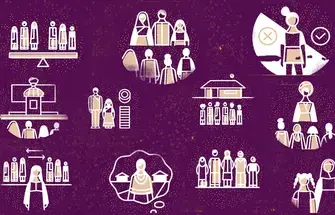Publication date : 02/01/2017
Author : Peter Baker and Tim Shand
The United Nation’s (UN) Sustainable Development Goal 3 on health and well–being contains important commitments to reducing by one third premature mortality from non–communicable diseases (NCDs), promoting mental health and well–being, strengthening the prevention and treatment of substance abuse, including narcotic drug abuse and harmful use of alcohol, and halving the number of global deaths and injuries from road traffic accidents. The Goal also aims to ensure universal access to sexual and reproductive health–care services, including for family planning, information and education, and to improve the implementation of the World Health Organization (WHO) Framework Convention on Tobacco Control.
All these commitments, if successfully implemented, would be particularly beneficial to the health of men and boys across the world; equally, they cannot be optimally realized without an approach that takes account of the specific health needs, social contexts and the related health practices of men and boys, and perceives addressing this area as a pathway to better well–being and equality for all. At present, such an approach is not reflected in policy and practice.














